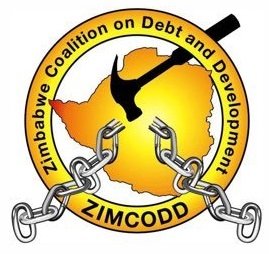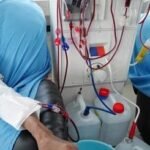Perpetua Murungweni
Poverty in Zimbabwe is not coincidental; it is an expected result of the structural makeup of the economy controlled by cartels that hold the means of production and inadvertently access to national wealth, the Zimbabwe Coalition on Debt and Development (ZIMCODD) has said.
ZIMCODD, in a statement issued by on April 14 2023, said poverty in Zimbabwe is a result of the economy which is controlled by cartels who have power over most basic resources such as land and abundant minerals.
“The most basic of resources such as land and abundant minerals are controlled by the ruling party and aligned cronies as allocated during the land reform programme in the early 2000’s and recently as mining concessions have been given to ‘foreign investors’ with no visible return to local communities,” read part of the statement.
ZIMCODD also indicated that the redistribution of land has done little towards development because the ones who have accessed it struggle to raise capital for production and cited corruption which facilitates leakages.
“On the land question, the redistributed land has done little as the section of citizens who have accessed it also struggle due to inability to raise capital for production. As a result, the land remains largely unused”
“In the same vein, corruption amongst those who hold the means of production remains a serious challenge. It is reported that Zimbabwe loses an estimated US$ 100 million per month and US$ 1 billion annually in gold leakages.
“These losses are facilitated by the political elite as recent revelations in the Al Jazeera exposure show that there is a level of government complicity and this points to an even bigger challenge as it is a reflection of decayed institutions managing public resources.
“This also raises serious concerns for us as a people based pro-poor coalition because the masses lose out on significant resources that could have changed lives. 7.7 million people are living in extreme poverty, 3.8 million rural people are in need of food assistance and 1.6 million urban people are in need of food assistance, 4.8 million children living in poverty and 1.6 million children living in extreme poverty, 10% of children aged between 6-24 months are consuming a minimally acceptable diet and 4.6 million students are in need of Basic Education Module Assistance (BEAM),” read the statement.
ZIMCODD also expressed concern as a pro-poor movement and recommend government to work towards achieving the dignity of a decent life to those living in poverty.
“Being a pro-poor movement, we then recommend that government meaningfully address the challenge of food insecurity. Only then can the 7.9 million citizens living in extreme poverty be afforded the dignity of a decent life.
“There is need to strengthen institutions such as the Zimbabwe Anti-Corruption Commission (ZACC) and Parliament to reduce corruption and illicit financials flows, the government must urgently address the wage erosion issue being experienced by workers to restore confidence and efficiency in the public service sector.
“Government should also provide social safety nets to cushion vulnerable groups including people with disability, the elderly, children and women, the Ministry of Finance and Economic Development, the wider Executive should foster fiscal discipline to reduce borrowing pressure and strengthen domestic resource mobilization,” said ZIMCODD. According to ZIMCODD, the issue of food security or its absence is not a political one but a social economic justice issue reflecting the livelihoods of citizens and more importantly the poor. Zimbabwe has been facing economic depression over the last three decades with the effects unfairly affecting the poorest and most vulnerable citizens.







